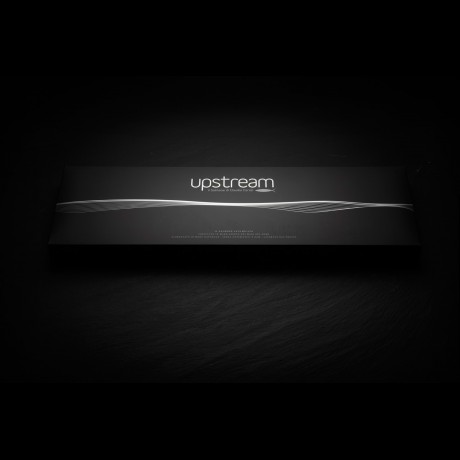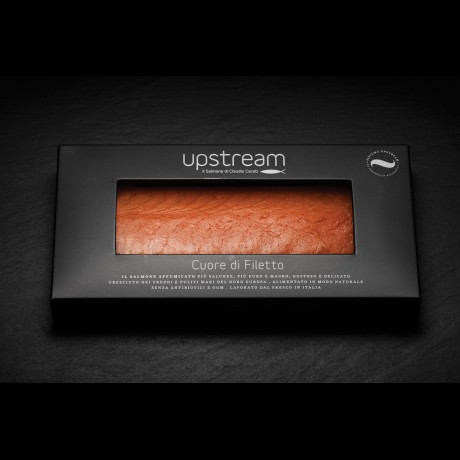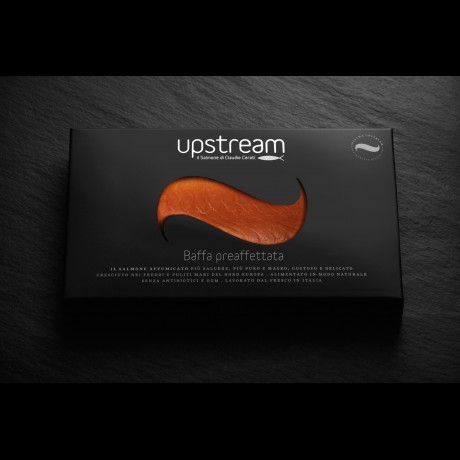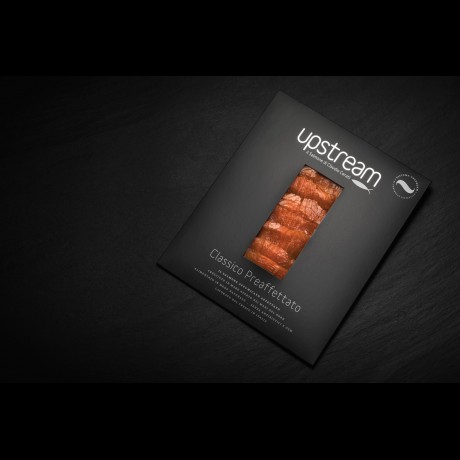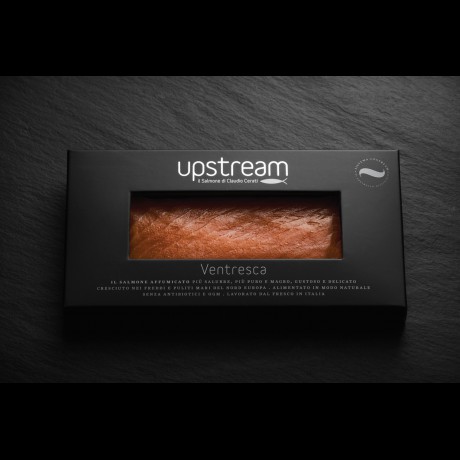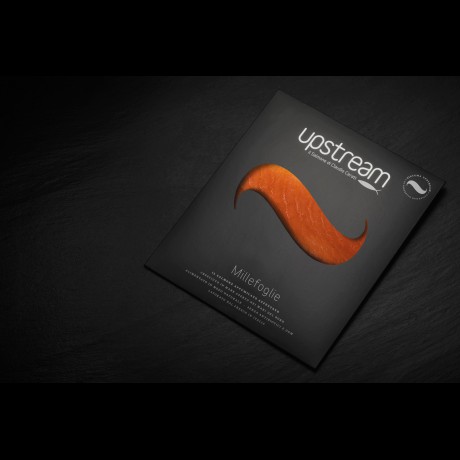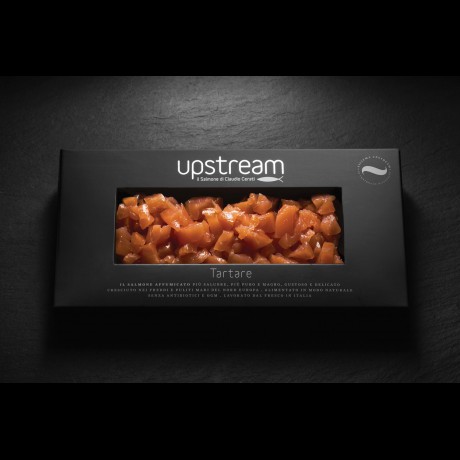Misconceptions and truths about smoked salmon: let us give you our views
Salmons and production systems are not all the same, and we certainly have more than one reason to challenge misconceptions about them.
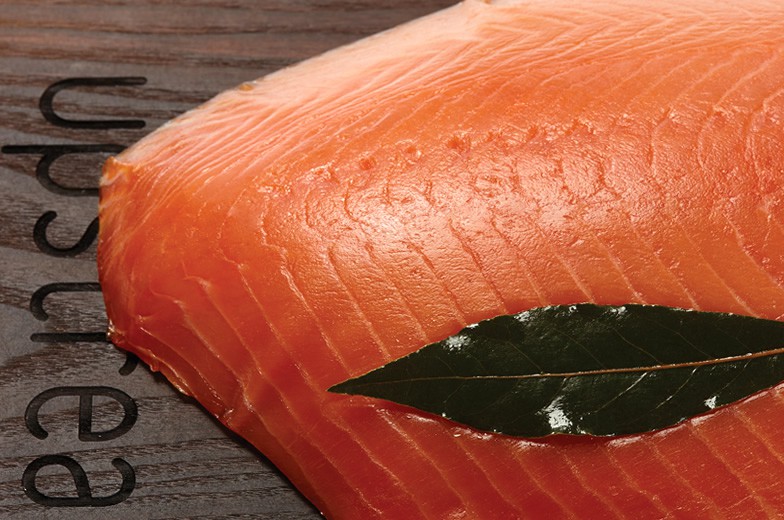
Repeatedly demonised for the impact on the environment and the quality of life of the fish, salmon farming still raises many doubts and is often associated with prejudice.
Not all farmed salmon are the same, nor are the production methods.
We have never liked clichés - after all, our salmon is called Upstream! - and we have more than one reason to claim that they are not absolute: we will explain them through the core elements of our Non intensive Control System.
Choosing salmon
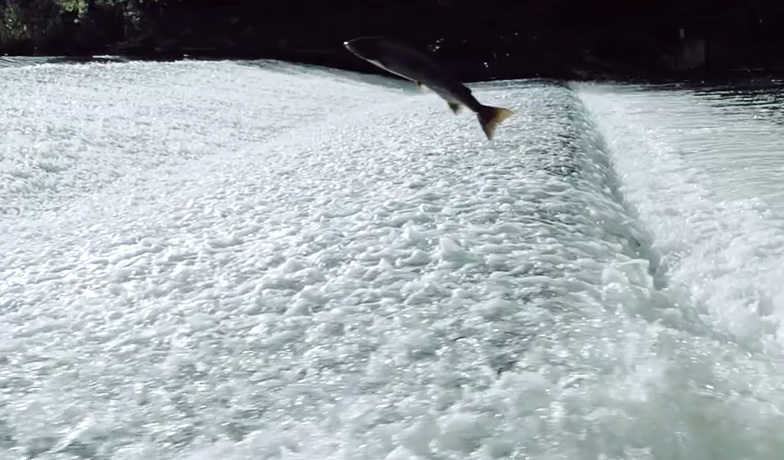
Is wild salmon the best on the market?
While we can say that the life cycle of wild salmon is completely natural, can we also say that the catching of wild salmon is always sustainable and does not have a negative impact on its life cycle and the conservation of the species?
Do we know the difference between wild salmon caught at sea and those caught in rivers?
The salmon is a fish that spends its life at sea and then returns to the fresh waters where it was born; once it arrives, it stops eating, goes upstream and reproduces. It is here that the salmon changes physically, it is that wild salmon rich in poetry and much sought after by the palate. However, the migration of salmon is anything but simple, an exhausting adventure for most fish not only because of the long and difficult routes, but also because of the difficulties linked to human intervention and ecological deterioration. It is almost impossible to find on the market salmon caught in the river, which is always under quota, with a fishing limit reduced to a very few and specific fishing areas.
Wild salmon from the sea is caught on migratory routes on its return journey to the river in nets or trammel nets, frozen on board and soaked in fresh water for glazing, then sent to markets and processors. This is the product that is conventionally found on the market and which raises the greatest concerns about the absolute sustainability of the process.
Different types of farming
Is salmon farming unique or are there differences?
In order to fully understand the market for farmed salmon, the biggest distinction has to be made between the different types of farming.
Intensive or Non intensive? Antibiotics free, with additives or OGM ?
Over time, in order to meet the ever-increasing market demand, many intensive farms have developed with tremendous stress on the salmon's lifestyle.
Upstream smoked salmon is genetically an Atlantic salmon ( salmo salar) that spends its life in clear, cold waters. The Atlantic salmon has over time adapted to the environment of the North Seas, so we can proudly say that we farm salmon in its natural environment. Waters are open and highly oxygenated ensuring high quality standards for our salmon, which can never be compared to salmon confined to still and poorly oxygenated waters.
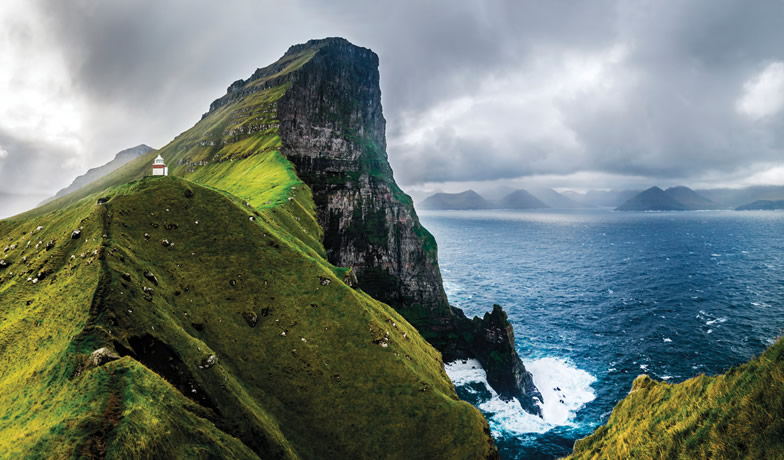
Salmon has very different organoleptic features according to where it has lived and how it is processed. Our stress-relieving system allows the salmon to live in the open sea, always subjected to constant sea currents that allow it to gain strength and muscle, resulting in firm, tasty meat with very low fat content.
Salmon nutrition and its properties
Are all farmed salmon raised with the help of antibiotics, additived and GMOs?
Certainly not all.
The controlled feeding of Upstream salmon is based on natural feed only. We only use marine raw materials, fish meal and fish oil for its diet, and only recently, we have introduced elements of plant origin to ensure an even more stable and sustainable diet.
The balanced and measured diet, together with freedom of movement, gives our salmon excellent properties such as natural, delicate flavour and lightness, and allows it to preserve its very important nutritional values.
Aquaculture and fishing
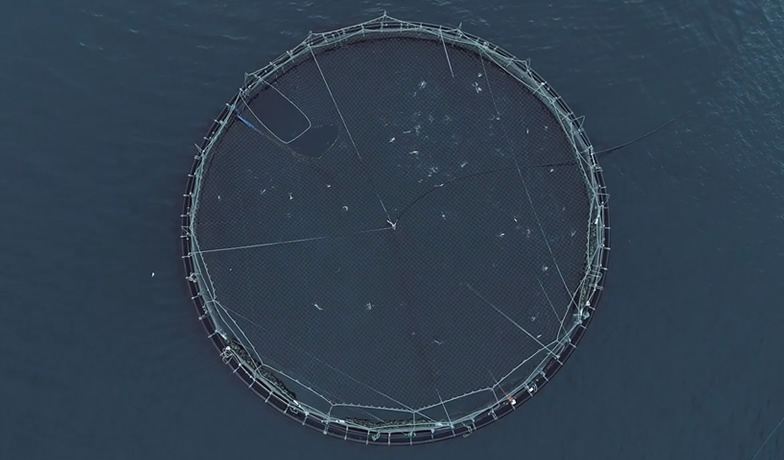
Are salmon's living conditions poor? Does the salmon suffer when being caught?
It is always a question of method.
Measurements, regular water and seabed checks and limited maximum densities allow our salmon to thrive and grow in large areas, to lead a balanced and protected lifestyle.
Finally, our fishing system. When the salmon reach the ideal size, they are caught using sophisticated catching systems that prevent the fish from suffering, and to avoid to affect the quality of the meat.
We take the live salmon to a collection tank through a process that totally eliminates the stress on the fish.
Salmon processing: marinating and smoking
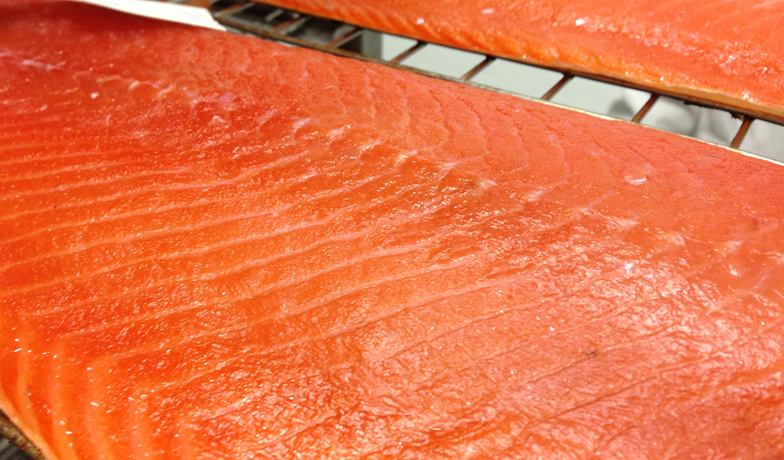
Do the smoked salmon on the market have preservatives?
The natural preservatives (salt, sugar and smoke) used in the Upstream smoked salmon recipe are intended to ensure that the product never has a shelf life of over 30-35 days. This is the expiry date for Upstream smoked salmon, which is the result of extremely gentle processing that preserves the natural quality of the meat and does not alter its genuine flavour.
Let us go deeper into the matter.
The two processes that salmon generally undergo before reaching the market are marinating and smoking.
The most common industry standard method of marinating is by brining, which is done in tanks to avoid loss of liquid and speed up the process; sometimes, it is also done through needles for injecting the brine.
None of this happens with the Upstream System: our marinating is gentle, carried out using a traditional method, with little salt and sugar always in alternating phases, never in solution.
There are also several methods available for industrial smoking. Smoking by injection and smoking with added flavourings. Remember that smoking is a treatment and not an ingredient.
At Upstream, we have developed a smoking process that is as special and unique as our smoked salmon itself. It is a light cold smoking process that we carry out using beech wood from the Parma Apennines, personally selected by Claudio Cerati.
Finally, only natural preservatives (sugar, salt and smoke) in the Upstream smoked salmon so that its organoleptic properties are constantly assessed by analysis and by lab controls in Parma, where our salmon becomes certified quality.
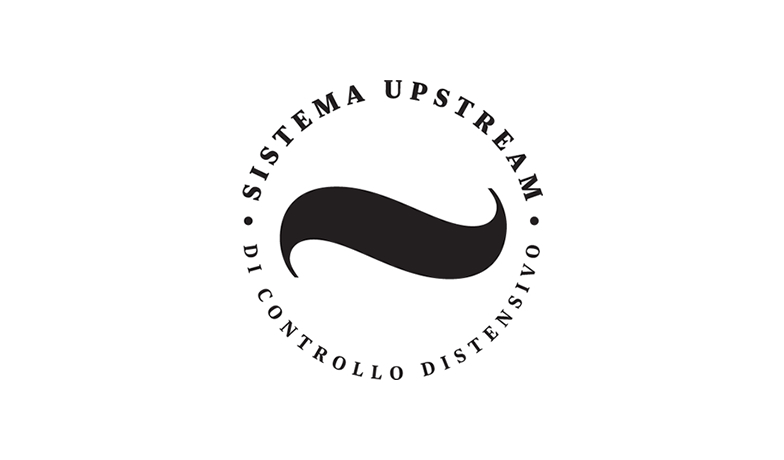
Our smoked salmon could never be subjected to the usual prejudices, because it is the result of a process that belongs to Upstream alone: read more about Upstream smoked salmon. It is neither wild nor farmed.

